The city — sliced, diced and served with a dash of sauce
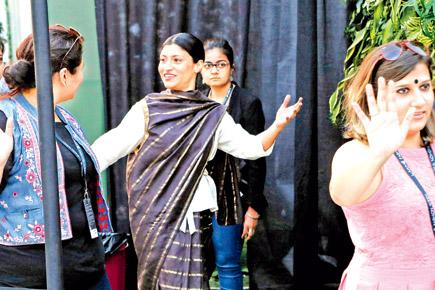
Sanjay-Konkana's pallu pulling
Benarasi revivalist Sanjay Garg chose Konkona Sen Sharma as muse when presenting his saree statement for 2017. He was among three designers (Anavila Misra and Hemang Agarwal) to partake in a short presentation at the ongoing fashion week on a day dedicated to celebrating handlooms and textiles.
ADVERTISEMENT
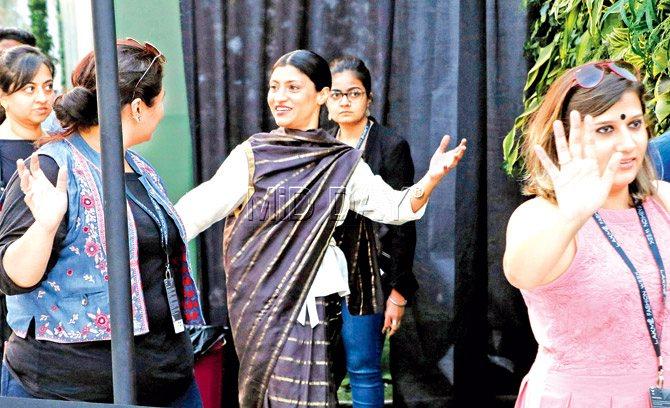
Konkona Sen Sharma at the ongoing fashion week. Pic/Shadab Khan
"Why does a mention of the saree invoke an occasion? I'd like to make sarees a part of the everyday wardrobe, especially for the youth. That's the only way to take it to the next generation," said Anavila about her design modelled by Lion actress Priyanka Bose.
Sanjay in his usual cheeky nonchalance said he wasn't a fan of turning the saree into a statement. "I want them to be as normal as the shirt and trousers. And although I hate the idea of pre-stitched sarees since I work with textiles, I have incorporated an armhole so that the pallu drapes like a brooch over your shoulder," he said, pulling the pallu off Konkana's arm to display the blouse with a tie-up. "Thanks for disrobing me in public, Sanjay. Though he did it with consent," laughed Konkona.
Being Sudha Murthy
"Three reasons why people buy my books are I'm Narayan Murthy's wife, they like the book, they find the title catchy." So said Sudha Murthy at the launch of her new book, The Serpent's Revenge: Unusual Tales from Mahabharata, at a Bandra bookstore on February 1. Endearingly humble as always, Murthy stated that she wanted to write something different.
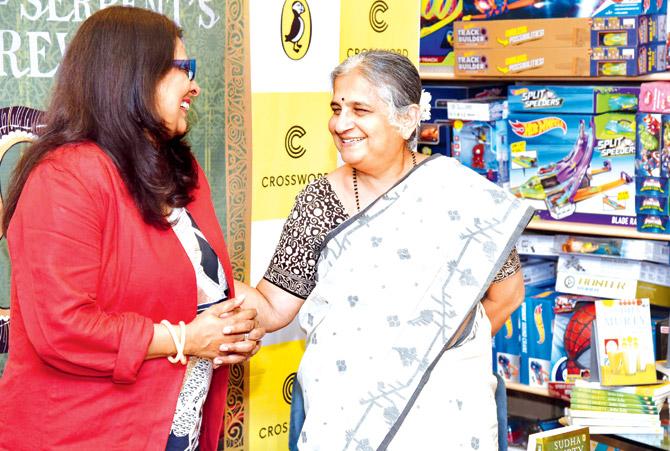
Sudha Murthy (right) at the launch
So, she focused on the lesser-known facts about the epic rather than the war, Draupadi's swayamvar and vastraharan. "That's how I found the unusual stories. If you are immersed in the subject, you'll get to know what to write, and what sequence to write it in," said the author, about her craft.
Following Gandhi's footsteps
Here's some interesting news for all aspiring filmmakers. The Gandhi Films Foundation, a public trust created in memory of the Father of the Nation, recently announced a nationwide competition.
Titled Values, the competition requires participants to make a short film or documentary that highlights Mahatma Gandhi's core values of honesty, simplicity and non-violence. The film needs to have a maximum running time of 10 minutes, and can be in any language. The last date for submission is April 30, 2017.
Mak that a half century!
Makarand Waingankar is no ordinary pen-pusher. Apart from his cricket writing, he also believes in serving the game just like he did when he was chief coordinator of a bowling scheme in Mumbai in the 1990s, which revolutionised fast bowling in this city. Waingankar, now Dr Waingankar, since he has done his PhD in Mumbai cricket, also found mention in MS Dhoni - The Untold Story since he was involved in a BCCI-backed talent hunt scheme, which the Indian cricket icon profited from.
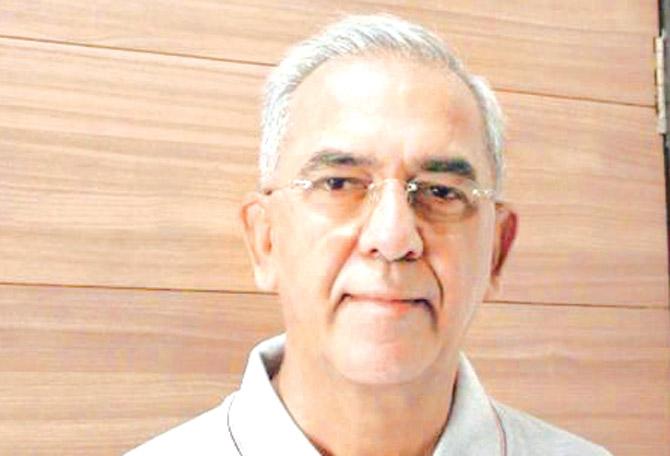
Makarand Waingankar
Yesterday, the straight-talking 68-year-old was in a cheerful mood after realising that it was 50 years since he wrote his first article. His maiden piece, on the India juniors' 1968-69 tour of Australia, was published in the Indian Express. Well done on your literary half century, Mak!
Housing matters
Today and tomorrow, leading names in architecture and urban development will come together for a seminar on housing at Max Mueller Bhavan. Titled State of Housing India, the seminar comes close on the heels of a prominent exhibition last year curated by critic and cultural theorist Ranjit Hoskote, architect Rahul Mehrotra and, theorist and critic Kaiwan Mehta.
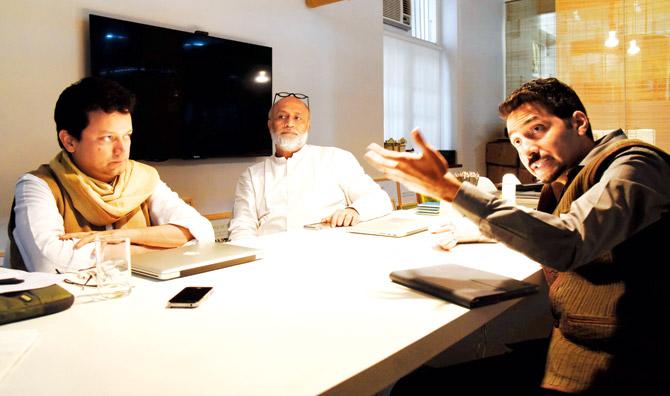
(From left) Ranjit Hoskote, Rahul Mehrotra and Kaiwan Mehta
The trio are behind the seminar as well, which is organised by the Architecture Foundation (a new initiative which kicks off today, we hear) in collaboration with the Urban Research Design Institute (UDRI).
The curators have brought together experts from diverse fields to get some holistic perspectives on housing, a pressing issue in our megapolis. Look forward to keynote addresses by Kirtee Shah (founder-director of the Ahmedabad Study Action Group) and Aromar Revi (director of the Indian Institute for Human Settlements), among others.
 Subscribe today by clicking the link and stay updated with the latest news!" Click here!
Subscribe today by clicking the link and stay updated with the latest news!" Click here!






